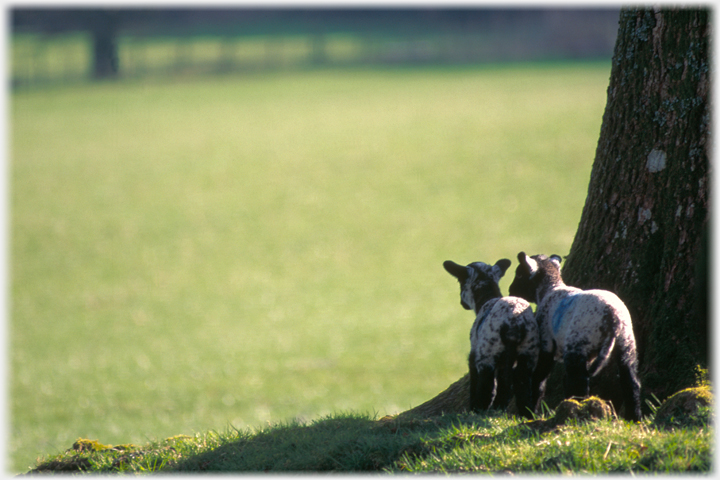
Nature...
...always means something within, or intimately belonging to, a thing, which is the source of its behaviour...it also bears the secondary sense of the sum total or aggregate of natural things, that is, it becomes more or less synonymous with the word ‘the world’.
R. G. Collingwood (1945)

Our potent word owes its own nascence to the Latin for birth, whence both ‘nature’ and ‘nascence’. Collingwood delves further, observing that in classical Greek times their word (Φύση - fýsi) also had twin meanings like our own: indicating the base of our individuality (his loving nature), as well as the origin of all we encounter, our ‘natural’ environment, our ‘world’ - everything that is not mental. Following Collingwood, on the one hand we have nature as the source and
essence
 So the word covers an idea which denotes that with which we are in accord.
of being human, and at the same time nature is exactly all that is not part of humanity and its
works:
So the word covers an idea which denotes that with which we are in accord.
of being human, and at the same time nature is exactly all that is not part of humanity and its
works:
 The long history of human separation from nature, with its concomitant rebounding to nature.
both the human plant and its
ground
The long history of human separation from nature, with its concomitant rebounding to nature.
both the human plant and its
ground
 Gardens offer an example of where humanity and nature might be able to meet.
are nature. Small surprise that she is often seen as our
home
Gardens offer an example of where humanity and nature might be able to meet.
are nature. Small surprise that she is often seen as our
home
 On Basho's the idea that the flux of nature can become our home.
On Basho's the idea that the flux of nature can become our home.
and refuge, providing basic meaning, as when part of formal Shintoism, or simply while we ‘commune’
with her.
 Gray’s Elegy offers an example of times when we may stop to reflect on nature.
Nature gives birth, burgeoning into
form,
Gray’s Elegy offers an example of times when we may stop to reflect on nature.
Nature gives birth, burgeoning into
form,
 On the complexity involved in understanding the idea of what it means to come into being.
creating the myriad individuals with which we live. And so providing the only ground out of which our mental life can grow.
On the complexity involved in understanding the idea of what it means to come into being.
creating the myriad individuals with which we live. And so providing the only ground out of which our mental life can grow.
The quotation comes from page 44 of Collingwood’s posthumously published The Idea of Nature, Oxford University Press.
The lambs were photographed on Gallowhill by Moffat in Scotland.
Above hovering on blue introduces a link: click to go, move away to stay.

Saturday 3rd April 2021
 ...guide to this site
...guide to this site